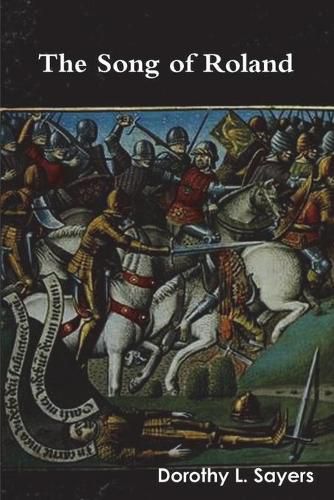Readings Newsletter
Become a Readings Member to make your shopping experience even easier.
Sign in or sign up for free!
You’re not far away from qualifying for FREE standard shipping within Australia
You’ve qualified for FREE standard shipping within Australia
The cart is loading…






This is the classical epic, glorifying the heroism of Charlemagne in the 778 battle between the Franks and the Moors. Penned by an anonymous poet, it describes in detail the betrayal and slaughter of Charlemagne’s army under Roland at Renceavaux and Charlemagne’s bitter revenge. Nowhere in literature is the medieval code of chivalry more perfectly expressed than in his masterly and exciting poem.
The Song of Roland, as Dorothy Sayers remarks in the introduction to this fine translation, is ‘the earliest the most famous, and the greatest of those Old French epics which are called Songs of Deeds.’ Writing around the end of the eleventh century, and recalling an actual disaster in 778, the anonymous poet describes in detail the betrayal and slaughter by Saracens of the rearguard of Charlemagne’s army under Roland at Renceavaux and Charlemagne’s bitter revenge. Nowhere in literature is the medieval code of chivalry more perfectly expressed than in his masterly and exciting poem!
$9.00 standard shipping within Australia
FREE standard shipping within Australia for orders over $100.00
Express & International shipping calculated at checkout
This is the classical epic, glorifying the heroism of Charlemagne in the 778 battle between the Franks and the Moors. Penned by an anonymous poet, it describes in detail the betrayal and slaughter of Charlemagne’s army under Roland at Renceavaux and Charlemagne’s bitter revenge. Nowhere in literature is the medieval code of chivalry more perfectly expressed than in his masterly and exciting poem.
The Song of Roland, as Dorothy Sayers remarks in the introduction to this fine translation, is ‘the earliest the most famous, and the greatest of those Old French epics which are called Songs of Deeds.’ Writing around the end of the eleventh century, and recalling an actual disaster in 778, the anonymous poet describes in detail the betrayal and slaughter by Saracens of the rearguard of Charlemagne’s army under Roland at Renceavaux and Charlemagne’s bitter revenge. Nowhere in literature is the medieval code of chivalry more perfectly expressed than in his masterly and exciting poem!